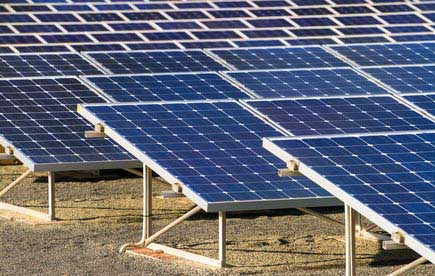Building the cheapest 5kW solar system can be a challenge. The cost will be partly decided by the components, partly by where you live, and partly by the cost of delivery and installation. Another factor will be the offset generated by any rebates you are entitled to, and returns you might get from selling power back to the grid.
The first thing to understand is that there is no standard nationwide price in Australia. The cost of a 5kW solar system in Brisbane is on average around $7600 after taking rebates into account. The same system in Canberra would cost over $1000 more.
Is 5kW overkill?
You also need to be certain that you really need such a large capacity, because 5kW solar systems are at the upper end of the residential scale. Most households could probably get by with a 3.5kW solar system or even a 2.5kW solar system. On the other hand, a 1.5kW solar system may not be sufficient to meet the energy demands of a typical Australian family.
To show the difference in cost between different system capacities, consider the following list, which shows the national average price for Australia at the time of writing (March 2015):
- 1.5kW solar system price: $3400
- 2.5kW solar system price: $4250
- 3.5kW solar system price: $5500
- 5.0kW solar system price: $7800
The greatest amount of variation across the nation is in 1.5kW solar system prices, while 5kW systems show the least variation.
Keeping the cost down
If cost is the most important consideration, then thin-film solar panels will be the obvious choice, and of the three main varieties of currently available thin-film technologies, CIGS panels will give you the best value.
In the future, a new type of solar collector will be available that is being developed right here in Australia. This new panel type will feature Dye Sensitised Solar Cells (DSSC), and will cost even less than CIGS panels. DSSC panels will be relatively inefficient, but as they are so cheap to manufacture, provided you have enough installation space, you could be inclined to buy them.

Battery type is also a major consideration because they are a huge contributor to system cost. While you may think it best to select the cheaper unsealed types such as deep-cycle marine batteries or flooded cell batteries, this could be a false economy. Sealed batteries have the advantage of being able to be used indoors, have lower maintenance requirements, and are safer to handle and store. Because you can use them indoors, they can be kept at a more stable temperature, which will increase their efficiency and extend their working life.



